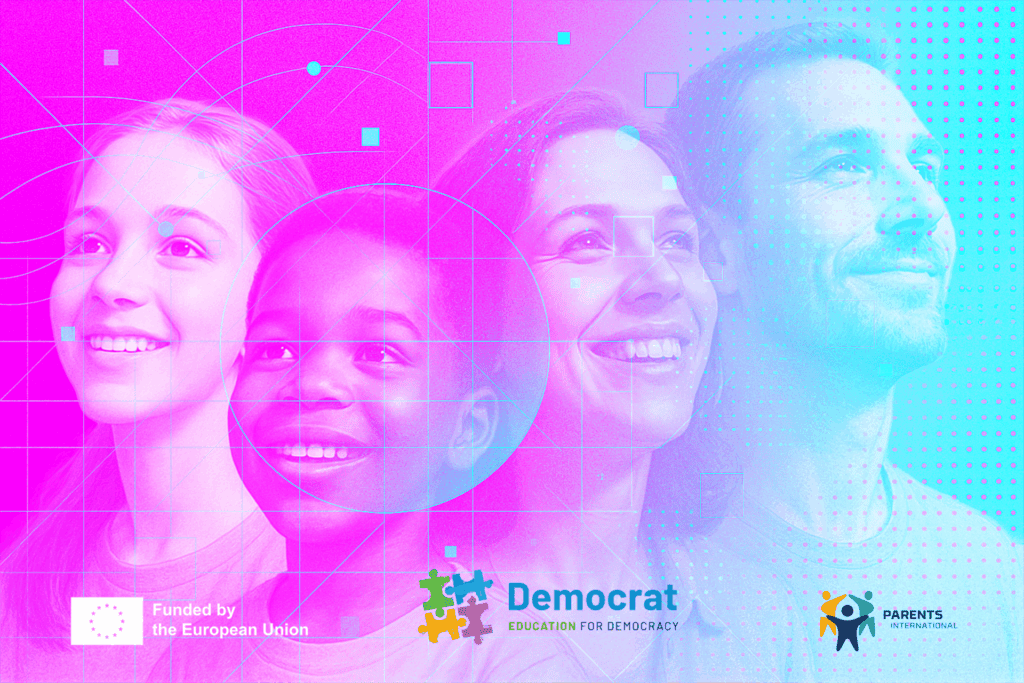Let’s Act Now: Reflections from the 2025 Digital Citizenship Education Forum in Strasbourg

On 27–28 May 2025, Strasbourg hosted the first Digital Citizenship Education Forum, a gathering that brought together over 200 people from more than 30 countries. The event was organised by the Council of Europe as part of the European Year of Digital Citizenship Education, and it provided a timely space for experts and stakeholder to exchange views and reflect together.
In a truly democratic fashion, policy-makers, professional educators, researchers, members of the civil society, and representatives from the private sector joined this inaugural forum, titled Let’s Act Now. The purpose of the event was straightforward: to consider how digital citizenship education might be better integrated across Europe’s diverse educational landscapes—and to do so in a way that is both principled and practical.
Grounding the Conversation in Practice
Parents International director Eszter Salamon moderated discussions on inclusive participation, and our team member Aristidis Protopsaltis delivered a intervention presenting recent findings from the DRONE project. His remarks focused on the essential role families play in digital learning environments, and how research can usefully inform policy without prescribing overly rigid models.
Throughout the Forum, many participants returned to a shared concern: how to ensure that digital citizenship education does not remain an abstract aspiration, but becomes a lived part of education—whether formal or informal, in schools, homes, or communities.
Key Themes: Inclusion, Trust, and Responsibility
The programme was structured around a series of Forum Talks and plenary discussions. While the sessions covered a wide range of topics, certain threads emerged consistently:
- The links between education and democracy, particularly in light of disinformation and declining civic trust;
- The responsibilities of private tech companies—not only in terms of safety, but also in contributing positively to educational frameworks;
- The question of equity in access and opportunity, and how digital citizenship education can be made genuinely inclusive;
- And the importance of critical thinking and respectful dialogue in digital spaces.
The tone was, for the most part, constructive rather than alarmist. Participants acknowledged the challenges without exaggeration, and the conversations were marked by a willingness to listen and to share.
The European Year of Digital Citizenship Education
This forum was part of a broader effort under the European Year of Digital Citizenship Education 2025, which was formally launched by the Council of Europe in January. The year’s objective is to raise awareness of digital citizenship as a public and educational concern, and to embed it more firmly into national and local strategies.
A number of events and initiatives are planned across the year, including a final gathering in Ljubljana in November 2025, which will focus on translating ideas into long-term commitments. In between, partners across Europe are working to document good practices, pilot new approaches, and build stronger networks across sectors.
One of the strengths of the Year so far has been its relatively open-ended approach: the Council has provided a framework and a sense of direction, while allowing for considerable flexibility in how countries and organisations interpret and apply it.
IPA’s Contribution: Families at the Centre
For us, the Strasbourg Forum was an opportunity to affirm a longstanding belief: that families are not peripheral to education—they are central to it. This is particularly true in the digital sphere, where formal and informal learning environments frequently intersect.
By bringing research from the DRONE project into the discussion, we highlighted the importance of grounding innovation in real-world practice. Families often serve as the first, and sometimes the only, line of support when it comes to online safety, critical media literacy, or children’s rights in the digital world,
A Modest but Meaningful Start
There is a tendency, at international forums, to overstate impact or to make bold declarations. The Strasbourg Forum largely resisted that. What emerged instead was a sense of steady progress: a recognition that while the challenges are significant, so too is the collective will to address them.
Digital citizenship education will not be transformed overnight, nor should it be. However, events like this suggest that, when space is created for serious conversation and collaborative thinking, progress becomes not only possible but probable.
Looking Ahead
The real test of the European Year of Digital Citizenship Education will be what remains after it ends. If the conversations held in Strasbourg are anything to go by, there is good reason to hope that the work started here will continue with greater coordination, stronger partnerships, and a shared commitment to equipping citizens of all ages for digital life.
There is much still to do, but also, clearly, much to build on.
One of the next steps of the DCE Year will be the November Democrat conference.